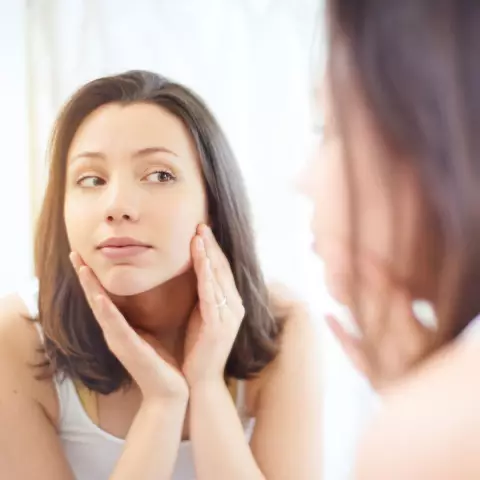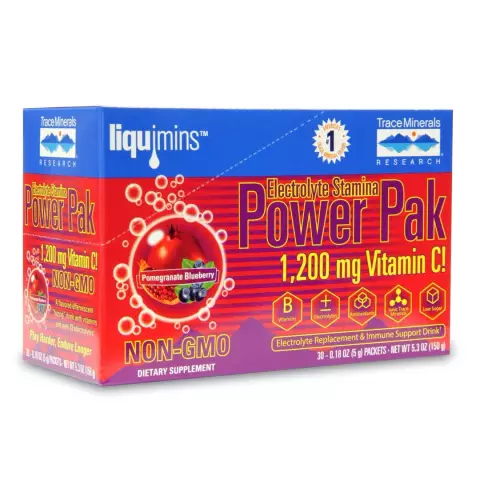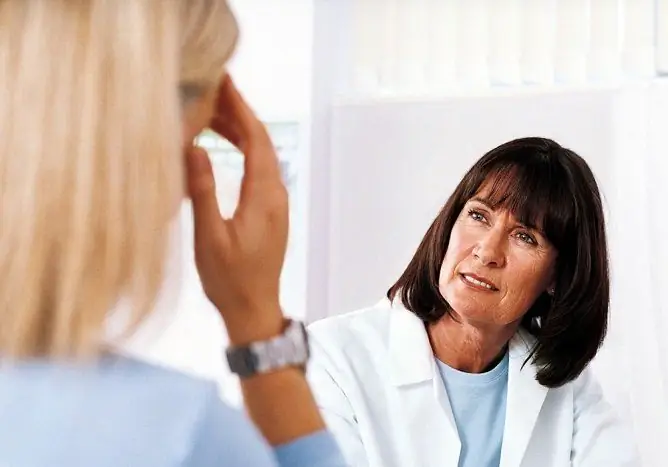- Author Rachel Wainwright wainwright@abchealthonline.com.
- Public 2023-12-15 07:39.
- Last modified 2025-11-02 20:14.
5 reasons to stop using antibacterial personal care products
Among perfumery and cosmetic products, a special group is made up of products containing antibacterial components. Such types of gels, shampoos, soaps, creams, lotions and other things are positioned by manufacturers as a panacea for all diseases caused by pathogenic microorganisms. Due to the gullibility of buyers and the influence of intrusive advertising, such funds are sometimes used immoderately, while many experts argue that all skin care products that contain antibacterial substances can cause significant harm to health.

Source: depositphotos.com
The toxic properties of triclosan
Triclosan is a part of personal hygiene products (and household chemicals) with antibacterial activity. This is a broad-spectrum substance capable of inhibiting the vital activity of many types of microflora.
However, it has been proven that the regular use of products with triclosan reduces the body's defenses. An antibacterial agent degrades the quality of sperm, causes disruptions in the production of sex hormones and thyroid hormones. In addition, triclosan can cross the placental barrier, causing fetal malformations, and it also passes into breast milk, adversely affecting the health of breastfed babies.
The death of beneficial microflora
Triclosan has a very high antibacterial activity, but it is not characterized by selectivity to distinguish beneficial from harmful microorganisms. Daily use of soaps, lotions, gels with triclosan leads to the death of essential bacteria and fungi that live on the skin and mucous membranes. An organism that has lost such microflora loses its natural protection against aggressive environmental factors. Moreover, it is not easy to restore the population of natural "defenders", and pathogenic microorganisms quickly take their place. The result is not a salvation from infections, but an increased risk of their development.
According to some reports, triclosan can have a destructive effect on epidermal cells, causing premature skin aging.
The appearance of toxic decomposition products
Triclosan decomposes when exposed to water and light. One of the decay products is dioxin, a highly toxic substance with carcinogenic activity. It is dangerous not only by its effect on the human body: when flushed, dioxin enters the sewer, and from it - into the soil and groundwater, in which it can accumulate for decades. The more often people use antibacterial personal care products, the higher the content of toxic substances in the environment.
Formation of antibiotic resistance in microorganisms
Unlike beneficial microorganisms, pathogenic bacteria tend to get used to triclosan rather quickly, mutating and forming strains that are insensitive to the action of the inhibitory agent. It is these species that actively populate the skin and provoke the development of dangerous diseases.

Source: depositphotos.com
Lack of instant action
The use of antibacterial types of soap, gel, washing powder, etc. is not only dangerous, but also does not fully provide the expected result. The fact is that triclosan does not have an instantaneous antimicrobial effect: in order for the microflora on the surfaces to be cleaned to die, it is necessary that the detergent covers them for 5-20 minutes. Since the antibacterial agent needs to be removed from the skin and things as quickly as possible to avoid harm, the antimicrobial effect will be virtually negligible.
The popularity of antibacterial household chemicals and personal hygiene products is largely the result of the impact of unfair advertising. In fact, such products are unsafe, especially for pregnant women, nursing mothers and young children. In everyday life, it is quite possible to do without it, replacing it with no less effective, but less harmful means containing plant components tested for centuries.
YouTube video related to the article:

Maria Kulkes Medical journalist About the author
Education: First Moscow State Medical University named after I. M. Sechenov, specialty "General Medicine".
Found a mistake in the text? Select it and press Ctrl + Enter.






